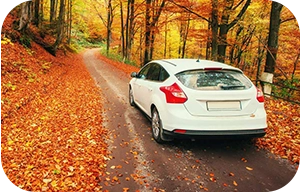Decisions around which car to purchase are based on any number of factors from functionality, usage, personal likes and dislikes, garaging options, size and of course price. Supply shortages have also added the issue of ‘how fast can I get my new car’ to the list of buying considerations. For those tossing up between purchasing a passenger car or a SUV, there may be uncertainty around the car loans. Will the loan be more or different for different types of vehicles?
We address this question specifically in regard to private vehicle buyers and personal car loans while giving an update on which passenger cars and SUVs were the best-sellers for July.
Current Best-Sellers
Sales of passenger cars have been declining in recent years as the popularity and range of SUVs continues to increase. Most manufacturers now have at least one if not multiple SUVs in their line-up to meet customer demand. In fact only one passenger car, the Toyota Corolla made the top 10 best- selling vehicles in the July sales figures as released by VFACTS.
Monthly new car sales figures are released by the FCAI and cover a large number of segments.
Here’s a brief rundown on the top 3 sellers in some of the popular passenger and SUV segment for July:-
- Micro cars: Kia Picanto, Mitsubishi Mirage, Fiat Abarth 500.
- Under $25,000 light cars: MG3, Suzuki Baleno, Suzuki Swift.
- Over $25,000 light cars: Mini Hatch, Audi A1, Citroen C3
- Small cars under the $40,000 price tag: Toyota’s Corolla was the best-seller, followed by the, i30 from Hyundai and Kia’s Cerato
- Small cars over $40,000: Audi A3, Mercedes A Class, BMW 2 Gran Coupe
- Medium cars under $60,000: Toyota Camry, Mazda 6, VW Passat
- Medium cars over $60,00: Mercedes C Class, BMW 3, Mercedes CLA
- Large cars under $70,000: Kia Stinger, Skoda Superb
- SUV Light: Mazda CX3, Toyota Yaris Cross, Kia Stonic
- SUV Small under $40,000: MG ZS, Mazda CX 30, Hyundai Kona
- SUV Small over $40,000: Audi Q3, Mercedes GLA, Volvo XC40
- SUV Medium under $60,000: RAV 4, Mazda CX5, Hyundai Tucson
- SUV Large under $70,000: Kluger, Prado, MU-X
- SUV Larger under $100,000: Land Cruiser, Patrol
While the sales are interesting to consider, keep in mind that these figures represent the cars that were delivered in that month. Many more buyers may be on wait lists. So when considering what to buy, the timing around when you will actually take delivery may become even more important than the car itself.
SUVs are popular for many reasons – style, larger and more accessible luggage space and others. But keep in mind that SUV does not mean four wheel drive or off-road. Many SUVs are two wheel drive and while higher off the ground than passenger cars, may not offer better driveability and performance in challenging road conditions.
Another issue to keep in mind is insurance. When purchasing a vehicle with finance, lenders require insurance to be taken out. There may be differences in the premiums for SUVs compared with passenger cars. This would need to be discussed with insurers when comparing policies.
Passenger v SUV: Are there differences with car loans?
Whether purchasing a passenger car or SUV as a private vehicle the same car loans are available with the Secured Car Loan the most popular for new car purchases. The finance options available for those acquiring vehicles for use in a business are different from personal car loans.
The finance products are different and so are the interest rates. Interest rates on business finance are typically lower than the rates for personal loans. In order to be eligible for business vehicle finance, an ABN will be required, the vehicle must be for use in the business which means certain ATO criteria will need to be met.
We’ll focus on personal car loans. The Secured Car Loan is the most popular and commonly-used loan type for private vehicle buyers. The structure and features of this loan remain the same regardless of the type of vehicle – passenger car or SUV, being purchased.
The aspects that may vary are the interest rate offered by lenders and potentially the loan term and amount which may be approved. The best business car loan rates that will be displayed by lenders for new car loans will typically apply to applicants that have a credit score in the good range.
Applications for car loans are assessed by lenders based on the individual aspects of the individual’s application. Lenders must comply with the guidelines and regulations as set by ASIC when making consumer finance offers.
A major part of that assessment is a review of the credit profile. This can be reviewed by individuals and actions may be taken to improve the score if it is not in the ‘good’ band. Information on how to do this is available at Moneysmart.
One aspect that can vary in regard to personal car loans, sometimes significantly, is the interest rates offered on car loans by different lenders. The interest rates will vary depending on individual lender guidelines as can be seen in our Business car loan interest rates chart.
While you may have a lot of work to do to decide and source your car or SUV, when it comes to car loans buyers only need to contact us and we will handle the sourcing the best rates and deals, the negotiating and assisting with settlement.
Contact Jade Car Loans at 1300 000 003 for a quote on the cheapest car loans for both passenger cars and SUVs
DISCLAIMER: IN REGARD TO MISREPRESENTATIONS AND ERRORS CONTAINED IN THE MATERIAL AS PRESENTED, LIABILITY IS NOT ACCEPTED. THE DETAILS AND CONTENT IS PROVIDED FOR CAR BUYERS AND INDIVIDUALS AND BUSINESS SEEKING FINANCE PURELY AS GENERAL INFORMATION. THIS IS NOT PROVIDED AS THE ONLY SOURCE OF FINANCIAL INFORMATION. ANYONE THAT CONSIDERS THAT NEED FINANCIAL ADVICE ABOUT THEIR SPECIFIC REQUIREMENTS SHOULD SEEK THEIR OWN FINANCIAL ADVISOR.


